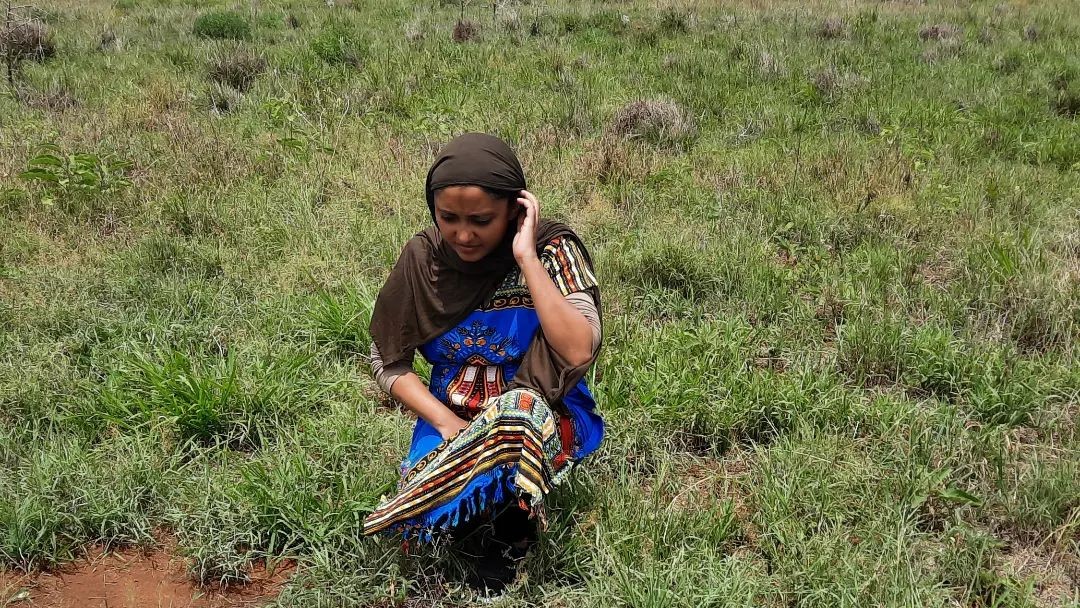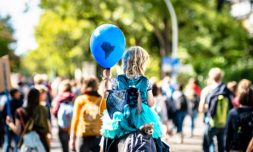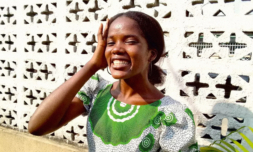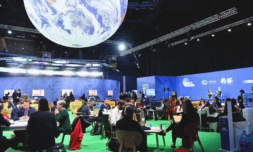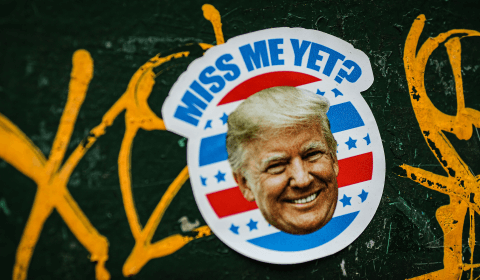What should be our main takeaways from the last fortnight, has this been as successful a summit as was necessary, and can we be optimistic about the future? We spoke with activist and co-founder of Wild Heart Kenya, Fazeela Mubarak, to find out.
Ending on a hopeful note, Solutions Day was all about examining the possible solutions for the broad array of climate change challenges we face – particularly how we can limit global temperatures to 1.5 degrees Celsius if we put our minds to it.
Elements of the day included panels looking at green business models, sustainable transport, and how cities can deal with the crisis on a more local level. There was also a focus on the start-ups that are bringing creativity and innovation to this effort.
Diplomatic negotiations on a pact additionally entered their final hours. While the exact outcomes won’t be known until the conference officially ends later this afternoon, COP27’s president labelled it the ‘implementation COP’ – the ‘world’s watershed moment on climate action’ – with the goal of holding countries to their pledges on carbon emissions cuts.
So, what should be our main takeaways from the last fortnight, has this been as successful a summit as was necessary, and can we be optimistic about the future? We spoke with Fazeela Mubarak to find out.
For the unfamiliar, Fazeela is an environmentalist turned activist born and raised in Kenya who now lives in London but whose work primarily still lies in her home country.
Striving to raise awareness about the importance of community conservation and the contribution of Indigenous practices in protecting the Earth’s biodiversity, she has experience in planning and implementing climate change mitigation projects with special attention to reducing human-wildlife conflicts.
She also co-founded Wild Heart Kenya, which she uses to highlight how the crisis is affecting communities. Through this she is fundraising for sustainable solutions, empowering women, and inspiring the next generation of conservationists.
View this post on Instagram
Thred: COP is in its 27th year, yet world leaders are still failing to treat the climate emergency like an emergency. How efficient do you consider the solutions that have been presented so far?
Fazeela: So far, I feel as though the solutions are moving very slowly, especially when it comes to loss and damage. I heard there’s been a small breakthrough whereby the majority of the parties have agreed to commit, but how long will it take to implement? How long will it take to reach the grassroots level? I’m doing what I can with my organisation, but we can only do so much. We’re covering a small area to provide Kenyan communities with aid during this drought but our country is so vast. That’s why, when we have these problems, it’s important to push for policy from a top-down level and let the solutions trickle down. It’s the waiting that’s an issue.
How long do we have to wait until we have something concrete that’s going to make a real difference to communities like mine?
Thred: Do you think COP could have done more to include the voices of young people and minority groups in their policies and pledges? And have said policies and pledges been ambitious enough?
Fazeela: No. When you look into the ratios of the civil movements that are there at the moment, there are few Indigenous people and frontline communities being represented. From what I understand, they’re being shut out of negotiation rooms and confined to certain spaces.
This is really disheartening to have learned after all this talk of getting youth and BIPOC individuals involved. Because when we show up, we’re locked out of the decision-making spaces. All while 600 fossil fuel representatives are given access. This makes you think: are they really going to put our planet and people before their profits? Or is this simply yet another case of youth washing and tokenism.
Additionally, there needs to be a system change. We need to be wary of organisations or people who want to youth wash. Young people’s contributions and views are being ignored. We need to push for real representation and stop having youth present in these spaces for the sake of it.
Thred: What are you hoping to see from today’s conversations and programmes? And are there any topics you wish had been on the agenda that weren’t discussed – or discussed enough?
Fazeela: There are discussions about frontline communities in the loss and damage space, but it still feels like they’re on the fringes. And something else that hasn’t been discussed at all so far is about finding solutions for nature. In Kenya, we are losing a lot of our wildlife. We’re watching it die. This is having a huge impact on biodiversity. But we don’t even talk about it. Nor the plants, which are a vital part of the ecosystem. Not enough of this has been addressed due to a lack of resources and funding. Organisations like mine – which strives to protect my home country’s wildlife – very little support. This effects how easy it is for us to be listened to and it’s presents real challenge.
Thred: My takeaway from that is that the climate crisis is such an overwhelmingly multifaceted issue. It touches all who inhabit the world – whether that’s humans, wildlife, or plants. Of course, it’s always going to be difficult to cover that in a two week period but, as you say, there’s not enough focus on the areas that need focus. There’s not enough support for the organisations on the ground actually doing the work – the ones that most need the world’s support. On this note, why is it so vital the diverse viewpoints of minority groups are incorporated into solutions?
Fazeela: Because we’re on the frontlines. We’re the people who are suffering the most. Think of the natural disasters that have been occurring in recent months. It’s us the minorities who are experiencing this first hand. If you live in the West, even when these disasters take place, the mechanisms to cope with them are so different.
This is due to the colonialist past that has put the West on a higher level of dealing with this crisis. But when it comes to communities like mine, we are left with minimal resources. Even our governments are struggling.
Though we are suffering the most, however, we also have the most solutions. Indigenous people have the knowledge, the resilience to confront this. They know what to grow in order to sustain their communities during a drought. They know how to work with heavy rainfall. It’s not only about how we’re being affected, it’s about having people truly embrace our solutions.
We don’t want people telling us what we should be doing. The solutions have to be led by us. We have every right to have a say.
Thred: The link between gender and climate change is not necessarily obvious to most. Yet women and girls are some of the most vulnerable categories of people who are having to not only confront the adverse effects of the crisis but really adapt their lives to cope with it. Given your experience with this, could you expand upon why it is they’re disproportionately affected?









